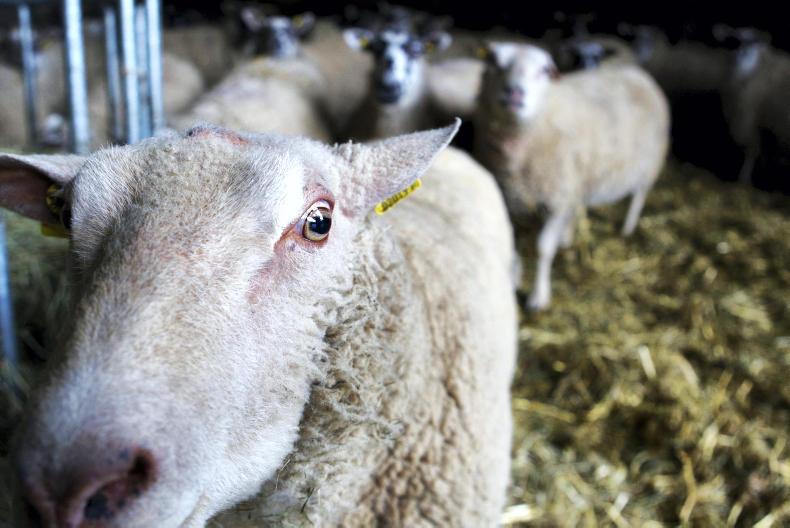The first confirmed cases of Jaagsiekte (JSRV) have been discovered in Ireland after a veterinary medical study.
JSVR is a highly infectious and deadly retrovirus that causes ovine pulmonary adenocarcinoma (OPA), which leads to fatal lung tumours in sheep.
In the 1930s, the disease gained notoriety for an outbreak in Iceland, which affected one-third of the sheep population and could only be controlled by intensive culling.
Testing
The medical study examined 1,911 lungs from adult sheep in Ireland and found that 31 lungs were positive for JSRV, while there were an additional 10 cases of OPA.
Cases of JSRV tended to come from the same flock and the positive sheep were identified as coming from Donegal, Kerry, Kilkenny, Offaly, Tipperary, Waterford and Wicklow.
It’s thought that the disease is spread through the air and probably through colostrum, with lambs being particularly susceptible to infection.
The disease usually manifests in adult animals and can go unnoticed for years after initial entry to flocks.
Prevalence
Although, it had been suspected for some time that JSRV was prevalent in Ireland, the cases were confirmed thanks to the use of molecular technology.
Based on the findings, the medical study estimates that prevalence rates in Ireland are similar to those in the UK, where the disease has been highlighted as a major cause of mortality in flocks.
Results also indicate that the disease has already established a diverse geographical spread in Ireland.
Read more
Sheep trends: demand driving price recovery
Meat quality study favours castrates over ram lambs
The first confirmed cases of Jaagsiekte (JSRV) have been discovered in Ireland after a veterinary medical study.
JSVR is a highly infectious and deadly retrovirus that causes ovine pulmonary adenocarcinoma (OPA), which leads to fatal lung tumours in sheep.
In the 1930s, the disease gained notoriety for an outbreak in Iceland, which affected one-third of the sheep population and could only be controlled by intensive culling.
Testing
The medical study examined 1,911 lungs from adult sheep in Ireland and found that 31 lungs were positive for JSRV, while there were an additional 10 cases of OPA.
Cases of JSRV tended to come from the same flock and the positive sheep were identified as coming from Donegal, Kerry, Kilkenny, Offaly, Tipperary, Waterford and Wicklow.
It’s thought that the disease is spread through the air and probably through colostrum, with lambs being particularly susceptible to infection.
The disease usually manifests in adult animals and can go unnoticed for years after initial entry to flocks.
Prevalence
Although, it had been suspected for some time that JSRV was prevalent in Ireland, the cases were confirmed thanks to the use of molecular technology.
Based on the findings, the medical study estimates that prevalence rates in Ireland are similar to those in the UK, where the disease has been highlighted as a major cause of mortality in flocks.
Results also indicate that the disease has already established a diverse geographical spread in Ireland.
Read more
Sheep trends: demand driving price recovery
Meat quality study favours castrates over ram lambs





SHARING OPTIONS